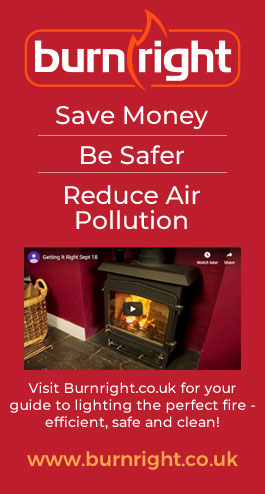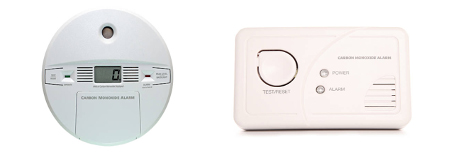Carbon Monoxide is “The Invisible Killer”
Too many individuals still die each year in the UK from CO poisoning.
Do you have a working carbon monoxide (CO) alarm? If not, WHY NOT
Taking Place between 23rd & 29th November
The Problem
There is still a lack of public awareness about carbon monoxide and the use of woodburning stoves, open fires and solid fuel boilers and cookers. Many people still believe that carbon monoxide only comes from gas appliances, but the truth is that any fuel that burns, creates carbon monoxide. If everything is working properly, CO passes harmlessly out of the chimney.
How does CO Poisoning happen?
Carbon monoxide gas is produced when burning any fuel. Poisoning occurs if you breathe it. You cannot see or smell carbon monoxide so unless you have a working alarm, you may be unaware of any problem. It can kill quickly and without warning. The symptoms of low-level CO poisoning are often mistaken for flu or generally feeling run down. They include headache, fatigue, dizziness, feeling or being sick.
Burning any solid fuel produces CO along with the other combustion gasses. These normally pass harmlessly out the top of the chimney. If however the chimney is blocked or leaking, and if the fire/appliance is faulty or if the ventilation to the fire/appliance is inadequate – CO gas may enter your property. This can happen in a different room from the location of the fire/appliance.
Proper installation, operation, and the correct maintenance of solid fuel-burning appliances in the home is the most important factor in reducing the risk of Carbon Monoxide poisoning.
How to Stay Safer
- Ensure your chimney is swept regularly by a professional chimney sweep and follow any safety advice that will be given.
- Have Carbon Monoxide alarms fitted and correctly located (many alarms are fitted in the wrong place)? Many chimney sweeps can provide you with and fit an alarm.
- Do not ignore an alarm, even if you are not using your fire or boiler. If you suspect carbon monoxide vacate the premises immediately and contact the relevant emergency service.
- Ensure that the fire/appliance has adequate ventilation. Do not block air vents.
Make sure appliances are installed and operated according to the manufacturer’s instructions and local building control regulations.
Consumers should have their solid fuel open fires, stoves and heating system inspected, serviced, and swept by a professional chimney sweep at least once a year to make sure the system is working properly. Inspections should include checking the chimneys, and flues.
You can get excellent advice, information and statistics on CO issues at www.co-gassafety.co.uk & The All Party Parliamentary Carbon Monoxide Group APPCOG
If you have any questions you would like to discuss with us or need to get your chimney swept and appliance service booked in, please get in touch.
We can also supply and fit carbon monoxide alarms as part of our professional service.
Tel: 01772 812714 or Click here to contact us


